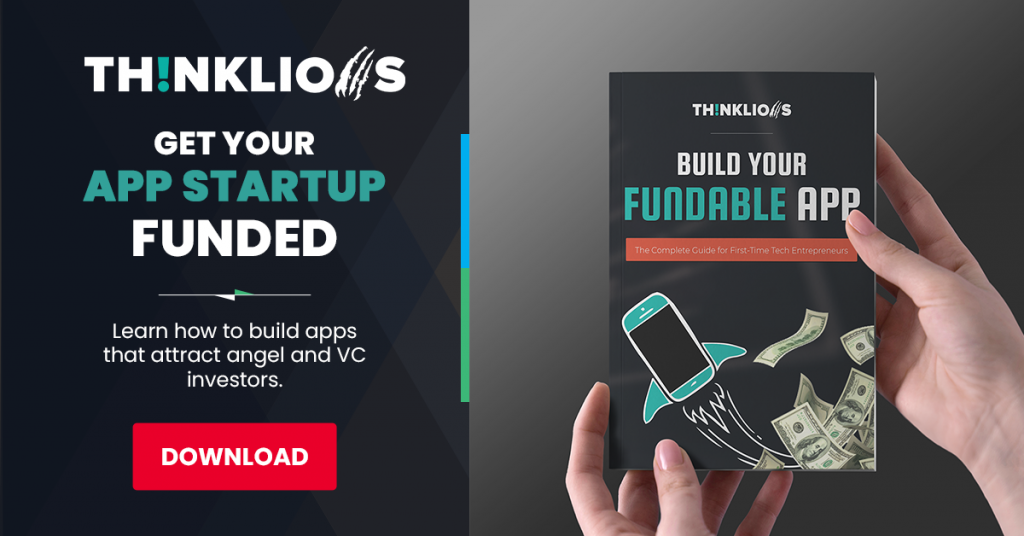The truth of the matter is, most app names are forgettable. Knowing how to name an app can influence how customers view and engage with your brand. It may seem trivial, but how important is a name?
For most of us, our name existed even before we did. While awaiting our arrival, our parents went through a stressful process of considering dozens of names before finding the perfect one. Whatever your name is, it has followed you throughout your entire life. In some cases, people may have heard your name before they ever met you.
Naming an app is similar to naming a child. The name will follow your brand forever. Like your name, potential users will often hear your app name before they ever actually use your app.
When someone says Google, everyone knows what it means, regardless of age, location, or experience. The name is so powerful that we don’t say, “I’ll search it online.” Instead, we say, “I’ll Google it!”
But how do you come up with such a clever name for your interesting app? How do you choose a name that sticks like Google, Facebook, Twitter, or Evernote? For inspiration, we talked to several app developers and entrepreneurs and found out how they came up with their app names. In this article, you’ll learn everything you need to know about how to name an app.

1. Reflect Your App’s Core Features
Many successful apps choose a name that describes what the app does. It doesn’t take much effort to understand that WeChat is a messaging app. Similarly, the name Netflix implies that the brand offers some type of content on the internet. Potential users won’t always read your app description, so having a name that explains its features can provide a massive advantage.
Brian Swanson, co-founder of Inspironto, explained how his team came up with the name for their app, QuestionAir. He said:
“Our team discussed the speed that our app sends questions from the poll manager to the respondent. Someone said it was like sending questions through the air. That’s how we came up with the idea to call it ‘QuestionAir.'”
The best app names aren’t extremely clever. Cleverness can often be too complex and complicated. When it comes to choosing the perfect name for your app, keeping things simple is always a good idea (K.I.S.S). A simple name is easy to remember.
Ionuț Mănășturean, the founder of Mini Games, explained how her team came up with the right name. She said:
“The name of our app, Mini Games, is simple and easy to remember. I picked this name because I wanted to express that our app has many mini-games to play.
When we did research, the first ranking app for the ‘mini games’ keyword was a Russian-language app. I saw this as an opportunity and began working on an English mini-games app. Now, our app ranks first for the ‘mini-games’ keyword in the Google Play Store and Apple App Store.”
2. Create Your Name With A Play On Words
Sometimes, a play on words can provide you with the perfect app name.
Take the app, Free Map Israel. By 2008, the company changed its name to one that you’ve definitely heard of now – Waze. Waze is a play on the word “ways.” The name represents the number of ways an individual can take to get to a certain location.
Aggrey Ellis, Director of Customer Experience at Gopher Leads, shared how he chose a name when he created an app. He said:
“We created a simple mobile app that allows employees to earn rewards by referring opportunities to their company. Gopher Leads, sounds like ‘Go For Leads’, as we try to convince employees to rally around and ‘go for’ sales.”
This approach is a great way to brainstorm new app names. There is a caveat here, however. If you get too creative, you might make it harder for users to find your app. If users don’t remember the spelling, they may search for Ways instead of Waze.
3. Keep It Short and Memorable
If your name is too long and complex, people will forget it immediately. We’ve seen names as long as 30 characters to 50 characters. Unfortunately, I can’t tell you what those names were, because I never remembered them.
Ideally, you want a short name with a minimal number of characters that is unique and memorable. Skype, SnapChat, and Tinder are all billion-dollar apps that have short and memorable names. These simple names make it easy for users to communicate when recommending these apps to their peers.
Yusuf Motiwala, founder and CEO of Mesibo, explained how he came up with the name for his app. He said:
“We were trying to come up with a name for our new messaging startup. We wanted it to be easy to pronounce, unique, and be less than eight characters. As simple as that sounds, finding a name with those criteria became an almost impossible exercise.
We were unable to come up with a convincing name, even though we brainstormed for days. One day, a team member suggested that we should think ‘beyond messaging.’ We came up with Mesibo by choosing letters from the phrase, ‘Messaging and Beyond.'”
4. Make Your App Name An Action Word
Some brand names have transformed from a noun to a verb. When someone says “Skype me,” we know exactly what they mean. When a friend says, “I’ll Uber to your house,” we understand the action.
Your business has probably reached the pinnacle of success when its name becomes an action. If you want to have similar success, consider how your app name sounds in everyday speech and flows with normal language.
Lori Cheek, founder and CEO of social media and dating app Cheekd explained her app’s name. Lori said:
“Growing up with the last name Cheek finally came in handy. For weeks, I was racking my brain about the verb that was going to finish the statement, ‘You’ve Been ______.’ One day, the answer came to me – You’ve been ‘Cheekd!’ The word ‘Cheekd’ is now in Wikipedia.
A few years ago, I was on ABC’s Shark Tank. My episode re-airs all over the world. One day, I received an email. It said, ‘Did you ever wonder how different your life would have been if your last name was Smith?
Yes, I have!”
5. Choose A Name That Is Searchable
If you want to maximize your reach, choose a name that fits into your marketing strategy. According to statistics, 63% of smartphone users discover apps through the app store. They search specific keywords to find an app that solves their specific problem. To maximize your app store optimization (ASO) potential, choose a name that aligns with your audience’s keyword searches.
For example, the app LiveAuctions directly aligns with the customer search. In this industry, customers are likely to search the keyword “live auctions.” With a related name, they are more likely to rank higher in the search results than other auction sites. Furthermore, customers know exactly what the app is about as soon as they come across the name.
Powerphrase‘s Marketing Manager, Newaz Chowdhury, told us how they created the name for the game, Trump’s Great Wall of America. Newaz said:
“When you’re brainstorming app name ideas, make sure it has keywords that people are searching for. We looked at competitors to see what apps were showing up for our keywords. Words like Trump, Great Wall, and America had massive search volumes.
‘Great Wall’ is also a popular search term in China. Therefore, we received a spike in downloads from China and elsewhere. This positioning led us to consistent traffic and downloads.”
Combining a great name with SEO and app store optimization leads to greater organic reach. When you’re choosing a name, consider how your target audience searches for information.
6. Align It With A Domain
If you’ll have a landing page or website associated with your app, you should align the name to an open domain. Choose one that is available and has a domain that isn’t currently in use.
Talk Travel’s founder, Saurabh Jindal, explained how domain availability helped him select an app name. He said:
“Talk Travel is a voice app that enables travelers to speak to destination experts in their own preferred language. We wanted to convey the idea of travel and talk to make travel simple.
We also wanted something seemingly memorable that customers couldn’t forget. It came down to a choice between Travel Talk and Talk Travel; but, the Travel Talk website domain wasn’t available. Hence, we decided to go with TalkTravel.”
Patrick van der Mijl, co-founder of Speakap also chose a name as a result of domain availability. Patrick said:
“It was a rainy Sunday when we did our research for a business name. Our criteria were that the name had to be short, simple, and related to our industry. Most importantly, the domain had to be available. Speakap was the top choice since our mission is to enable employees to have a voice.”
7. Pick The Obvious Name
Sometimes you don’t need to choose a name, because the right name may just choose you. Choosing a name like Tasker didn’t require weeks of brainstorming. The name made sense and is a rather obvious choice for an app that helps you manage tasks. Likewise, theScore is a pretty obvious app name for a sports score app.
Often, the obvious choice still fits the criteria of our previous tips. It reflects core features, it’s searchable, and it’s memorable.
Cody Swann, CEO of Gunner Technology, explained how he named the uConsent app. He said:
“uConsent is an app designed to foster communication around sexual intimacy. The app creates a secure record of each party’s consent, including location, time, and specifics.
It’s all about consent, so uConsent was an obvious choice. Many times, the name is obvious if you think about it long enough. Still, it’s important to let the name produce itself naturally.”
8. Connect With Your Consumer’s Emotions
Some app names evoke emotion. When users read the name, it connects with them and puts them in a particular mood.
An example of an emotional name is MyFitnessPal. It isn’t just another fitness tracking app, but it’s a pal. It’s something you can depend on to hold you accountable for your fitness goals.
Family Locator is another app name that immediately pulls on the emotions of users. The name makes you think of how you’d feel if you couldn’t locate a family member. With high emotion, it is more likely that a prospect will make a purchase decision.
Zach Hendrix, co-founder of GreenPal told us a similar story of how they came up with their app name. Zach told us:
“We wanted our mobile app’s name to invoke a personal response from our users. When you are looking for a lawn care service, you usually ask a friend or family member for a recommendation. We decided to combine the color of green grass with the feeling of receiving a recommendation from a friend. After brainstorming for weeks, we landed on GreenPal and it has stuck.”
The Most Important App Naming Tip
The app name you select will follow your brand forever. Sure, you can use an app name generator, but it won’t consider your brand and target audience. Instead, follow the tips from these great app founders and choose a name that represents your product, audience, and mission.
We’ve mentioned several fantastic tips for naming an app. However, there is one tip that is most important – make sure your app is as good as your app name. A great name is meaningless if the app is going to let them down.
As always, we’re here to help you build awesome apps. Our team has assisted dozens of startups in innovating market-leading technology. We’d love to help you, too. Contact us for a free consultation and learn how we can help you bring your app idea to life.








